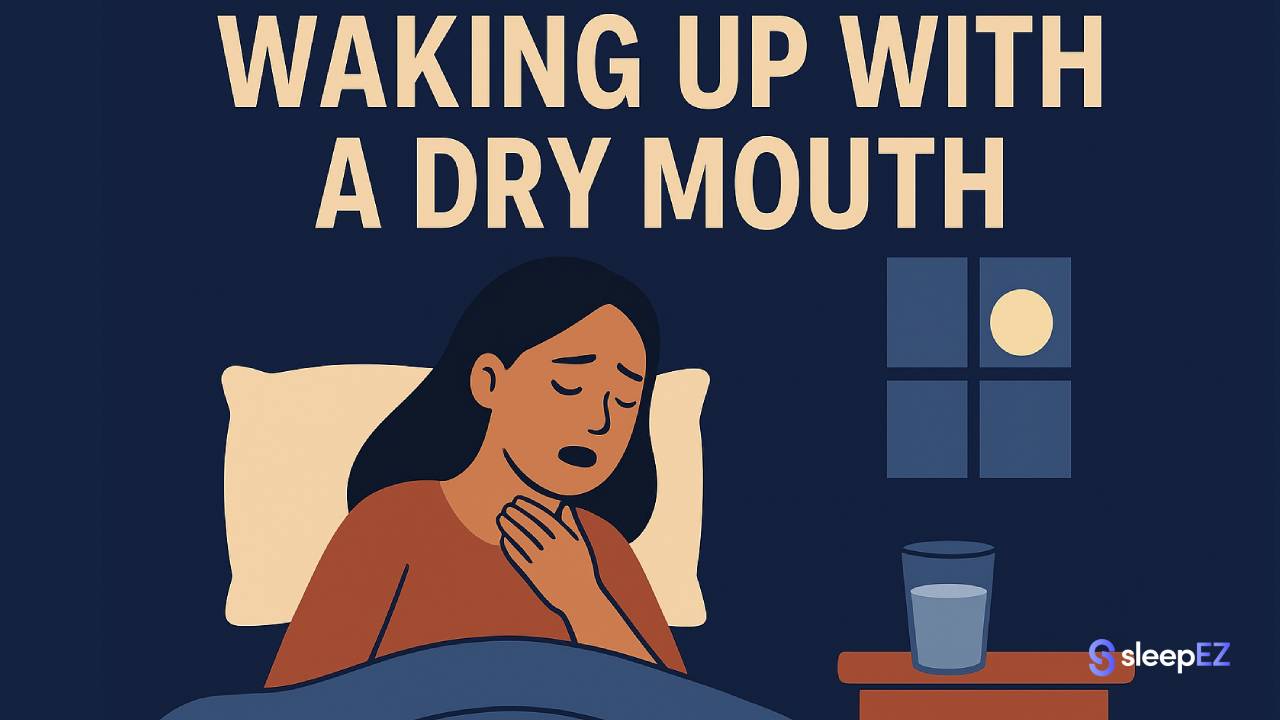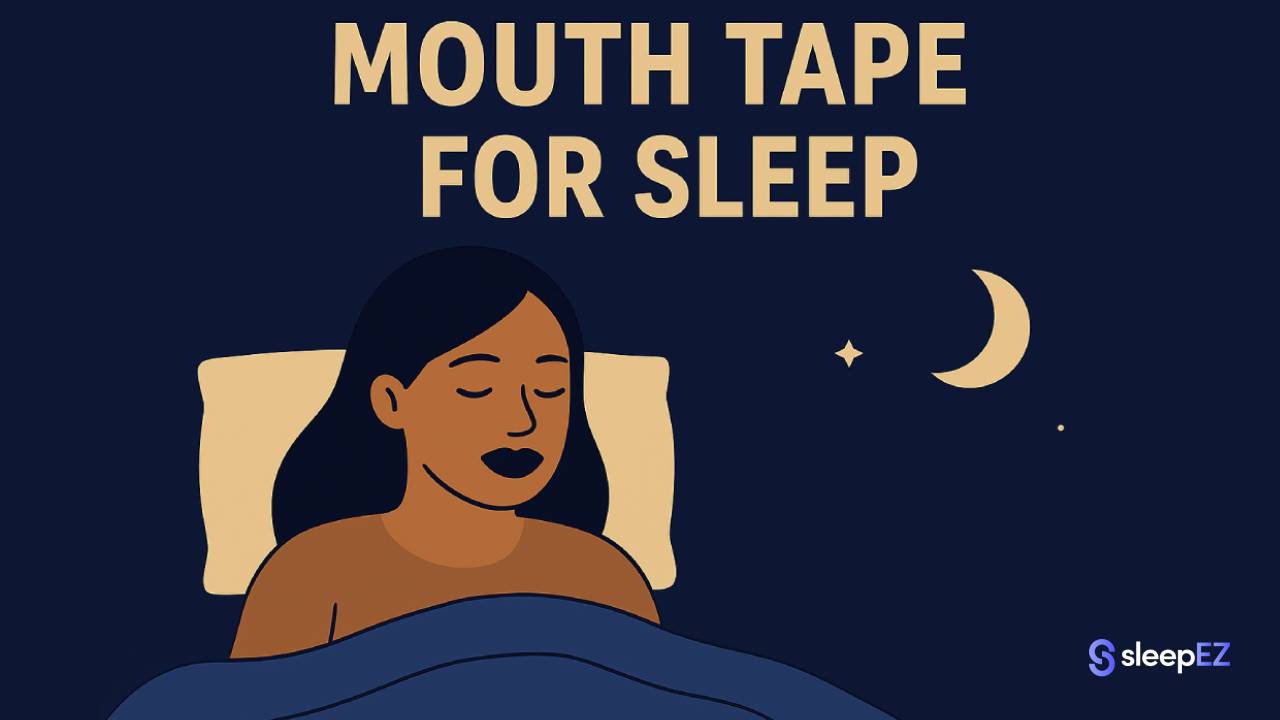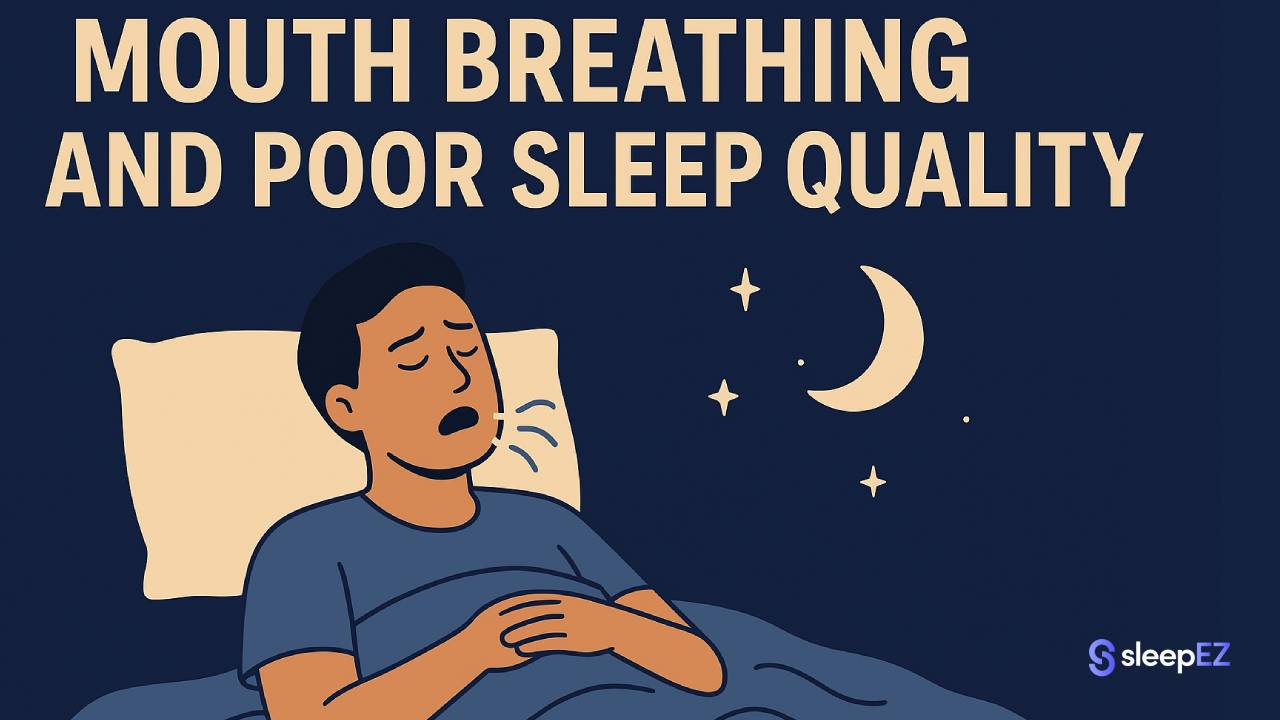You know that feeling. You wake up and your mouth feels like sandpaper. Your tongue is stuck to the roof of your mouth. You need water immediately.
It's uncomfortable, but it's also a signal that something is off. Waking up with a dry mouth isn't just annoying. It can damage your teeth and gums over time. Less saliva means more bacteria, which leads to cavities and bad breath.
The good news? For most people, this problem has a simple fix. Let's look at what causes it and how to stop it.
Why Do I Wake Up With a Dry Mouth? The 5 Common Causes
Before you can fix the problem, you need to know what's causing it. Dry mouth in the morning usually comes down to one of five reasons.
Some are simple lifestyle factors you can change tonight. Others might need a doctor's help. Here's what's likely happening while you sleep.
1. Mouth Breathing
This is the number one reason people wake up with a dry mouth. When you breathe through your mouth at night, air flows directly over your tongue and the inside of your cheeks. This constant airflow evaporates your saliva.
Some people are habitual mouth breathers. Others only breathe through their mouth when their nose is blocked from allergies, a cold, or structural issues like a deviated septum. Either way, the result is the same: you wake up parched.
2. Dehydration
This one is straightforward. Your body needs water to make saliva. If you're not drinking enough during the day, or if you're losing fluids through exercise or alcohol, your mouth will be dry come morning.
Think of it this way: you can't produce what you don't have.
3. Lifestyle Factors (Alcohol, Caffeine, Smoking)
Alcohol and caffeine are both diuretics, which means they make you pee more and lose fluids. Alcohol also directly reduces saliva production. That nightcap might help you fall asleep, but it's probably why you wake up with cotton mouth.
Smoking dries out your mouth and damages the salivary glands over time.
4. Medication Side Effects
Hundreds of common medications list dry mouth as a side effect. Antihistamines, decongestants, antidepressants, blood pressure medications, and muscle relaxants are frequent culprits.
If you started a new medication around the same time your dry mouth began, there's likely a connection.
5. Underlying Medical Conditions
Sometimes dry mouth points to a bigger health issue. Sleep apnea, diabetes, Sjögren's syndrome, and autoimmune disorders can all cause chronic dry mouth.
If you have other symptoms like extreme thirst, frequent urination, loud snoring, or chronic fatigue, talk to your doctor.
How to Stop Waking Up With a Dry Mouth
Now that you know what causes morning dry mouth, let's talk about fixing it. The good news is that most of these solutions are simple and work within a few days.
Start with the basics and work your way to the most effective fix.
Stay Hydrated & Use a Humidifier
Drink plenty of water throughout the day. Keep a glass of water on your nightstand. Stop drinking fluids about an hour before bed so you're not waking up to use the bathroom, but make sure you're well hydrated before that cutoff.
A humidifier adds moisture to the air in your bedroom. This helps prevent evaporation of saliva, especially if you live in a dry climate or run the heat or AC at night.
Review Your Habits and Medications
Cut back on alcohol and caffeine in the hours before bed. If you smoke, quitting will help (along with a hundred other health benefits).
If you suspect your medication is the problem, talk to your doctor. There may be an alternative drug that doesn't cause dry mouth. Never stop taking prescribed medication without consulting your doctor first.
Stop Mouth Breathing
Here's the truth: you can drink all the water you want and run a humidifier all night. But if your mouth is hanging open while you sleep, you're going to wake up dry.
Mouth breathing is the root cause, not just a symptom. Even perfectly hydrated people will have dry mouths if they sleep with their mouths open. The constant airflow is simply too much for your saliva to keep up with.
The most direct way to fix this is to keep your mouth closed at night. That forces your body to breathe through your nose, which is what it's designed to do anyway. Nasal breathing keeps your mouth sealed and your saliva where it belongs.
The easiest way to ensure nasal breathing all night is with mouth tape for sleep. It provides a gentle seal that makes nose breathing automatic. You're not forcing anything. You're just removing the option to let your mouth fall open.
If you want to try this approach, Breathe Mouth Tape is designed with a lip-shaped fit that stays comfortable and secure through the night. Many people find it solves their dry mouth problem within the first few nights of use.
When to See a Doctor About Dry Mouth
Most cases of morning dry mouth are harmless and fixable at home. But sometimes it's a sign of something more serious.
See a doctor if:
- Home remedies don't help after a few weeks
- Your dry mouth is constant, not just in the morning
- You have trouble swallowing or speaking
- You have other symptoms like extreme thirst, unexplained weight loss, or chronic fatigue
- Your tongue has sores or a white coating
These could indicate diabetes, sleep apnea, or an autoimmune condition that needs treatment.
Your Path to Waking Up Refreshed
Waking up with a dry mouth is a solvable problem. For most people, the answer is addressing nighttime mouth breathing. Stop the air from flowing over your mouth all night and you stop the evaporation that causes the dryness.
You don't have to accept waking up parched and uncomfortable. Take control of how you breathe at night and you'll take control of your sleep quality.




Leave a comment
This site is protected by hCaptcha and the hCaptcha Privacy Policy and Terms of Service apply.